AudioCulture
The noisy library of New Zealand music
Te pātaka korihi o ngā puoro o Aotearoa
Myele Manzanza
A decade and a half later, the now veteran drummer, producer, DJ, and composer is based in London, where he has spent the last few years finding his place within the UK and Europe’s vibrant modern jazz, soul, hip-hop, house, techno, and experimental music scenes.
In his words, “The economics of being a niche musician are a lot more sustainable here, just off the back of having that many more people that could potentially be interested in your music at a fairly close proximity.”
A pre-history
Myele was born in Dunedin, but grew up in Wellington. “Going way back to the beginning, my mother is Pākehā, and my father is from the Democratic Republic of the Congo. They met in Kinshasa [in the early 1980s], which is the capital. Mum was doing a very extended OE or expedition, and she ended up doing the sort of schlep across the Sahara and Africa and eventually found a job at an embassy in Kinshasa.”
Outside of work hours, she started hanging out at a nightclub and restaurant in the diplomatic quarter that was run by the man who would become Myele’s father, the master percussionist Sam Manzanza. “My mum met him there,” Myele continued. “Then they got together and got married.” Fast forward several years and Myele’s parents were pregnant and living in Dunedin, New Zealand. “Dad was happy to sell up shop, move over and have a new adventure,” he continued. “My mother’s family is from Dunedin, so they came there initially, but after I was born, we moved to Wellington.”
Childhood years
After arriving in Wellington in the late 1980s, Sam helped introduce Afrobeat and Highlife music to New Zealand audiences. When he wasn’t performing, he could often be found running hand-drumming workshops or advocating for the country’s African communities. “Most people know him as a musician,” says Myele. “He’s a vibrant entertainer with a lot of stage presence and personality. It’s also not an exaggeration to say he’s the first Black person a lot of New Zealanders would have seen in the flesh in those days.”
By virtue of his performances and workshops, Sam introduced countless local musicians to the conventions of traditional and modern African musical forms. “A high percentage of the Wellington music scene, across multiple generations, would have played in his band at one point or another,” Myele reflected. “So I grew up in that environment around music.”
When Myele was young, his father Sam would take him to hand-drumming workshops.
When Myele was young, Sam would take him on tour around the country and bring him to his hand-drumming workshops at the Aro Valley Community Centre. “I’d be invited to join up if I wanted, but there was no pressure. It was just a thing that I was around, and I kind of learned by osmosis.”
By his mid-teens, he was thinking about pursuing drumming more seriously but still imagined a range of potential futures. “Until that point, music was just another thing. I was into basketball, and I was really into snowboarding. I thought maybe I’d have a life as a snowboarder, travel winters, and work as a bartender.”
Discovering jazz
Musically speaking, things began to change once Myele started studying under the music teacher Fritz Wollner at Wellington High School. Although he’d already heard jazz at home, he remembers Fritz playing Kind of Blue by Miles Davis to the class, as well as Chick Corea, Ella Fitzgerald, Art Blakey & The Jazz Messengers, and John Coltrane’s A Love Supreme.
After his high-school drum teacher, Matt Swain (the original drummer from Odessa), introduced him to basic drum concepts, Myele was invited to join the Wellington High School Jazz Big Band as a percussionist. Playing with them allowed him to attend the Tauranga Jazz Festival. “I thought I was a good drummer, but I was relying on natural ability until that point,” he says.
Inspired by the skill level he saw on stage at the festival, Myele started to commit to practising. By Year 12 in high school, he was participating in summer music workshops and aiming to be accepted into the New Zealand School Of Music. At the same time, with a fake ID in hand, he was going out at night to see rising local bands of the era, such as Shapeshifter and TrinityRoots, perform in venues and nightclubs around the city.
Stepping to the stage
In his final year of high school, Myele started drumming for Olmecha Supreme, the afro-futuristic roots music collective led by Imon Starr (the son of the US blues legend Taj Mahal). “That was my first real big break,” he reflected. “I was pretty green then, but Imon saw something in me. I learned a lot in Olmecha Supreme.”
At the time, Imon’s sister Deva Mahal was also singing weekly at the now-shuttered Hope Bros Bar & Restaurant. Olmecha Supreme often hung out at her shows, sometimes joining her on stage. “That was when I started to fall into the Welly dub, soul, jazz extended family,” says Myele.
During his Olmecha Supreme years, Myele also drummed with jazz pianist Jonathan Crayford, the live band of then-New Zealand-based Detroit house producer DJ Recloose, and countless other members of the capital’s music scene. True to his word, he also completed a degree in jazz performance at the New Zealand School of Music, graduating with honours in 2008. The year beforehand, however, something pivotal happened when he crossed paths with a keyboardist, producer, and DJ named Dave “Taay Ninh” Wright.
Electric Wire Hustle
Hailing from the South Island, Dave cut his teeth playing with the Christchurch eclectic jazz electronica big band Solaa before attending the Red Bull Music Academy in Melbourne and visiting New York. Returning to New Zealand inspired, he settled in Wellington, where he heard Myele busking on the street. “He hit me up like, ‘Hey man, I really love your drumming. Maybe we could hang out and do some stuff?’” says Myele.
From there, Dave and Myele connected with a multi-instrumentalist, vocalist, producer, and DJ named Mara Te Kahika (Mara TK for short), the son of the legendary Māori guitarist Billy TK. All three loved classic jazz and soul, but being of a younger generation, they were deeply tapped into hip-hop, house, techno, and the instrumental beat music sound dominating the UK and US underground at the time. After taking their name from the track ‘Electric Wire Hustle Flower’ on the smooth Chicago rapper Common’s experimental Electric Circus album, they became Electric Wire Hustle, the most important future soul group to emerge from New Zealand in the late 2000s.
Electric Wire Hustle got the most momentum out of all his projects in the late 2000s.
“Electric Wire Hustle definitely got the most momentum out of all of the projects I was involved with at that time,” says Myele. Over the next few years, the group dropped a series of acclaimed 7" and 12" singles with Japan’s Wonderful Noise Productions, culminating in the 2009 release of their self-titled debut album through their own Every Waking Hour label. The following year, BBE Records, then known for their work with J Dilla, DJ Jazzy Jeff, Madlib & DJ Spinna, licensed it for overseas release.
Faster than any of them had hoped, Electric Wire Hustle became a favourite with UK tastemaker DJs Gilles Peterson and Benji B, leading to opportunities to perform across Europe and America. “When I look back on it, the music was good, but there was a lot of ‘right place, right time’ stuff going on,” Myele admitted. “The stars just aligned for us in many ways.”
For Myele, the early Electric Wire Hustle years were when he began to realise the potential to create an international life for himself through music. “Before she had me, my mother was a big traveller,” he says. “Her stories of Europe and Africa lit my desire to do a similar thing, meet new cultures, hear people speaking different languages, try new food, and be curious like that. I think recognising that music could do that for me was a pretty dynamic and exciting prospect. It led me to sort of really push to try and do more and more of that.”
The Red Bull Music Academy
In 2010, Myele was selected to attend the Red Bull Music Academy in London, where he met Australian jazz bass player, composer, and producer Ross McHenry, who would become a recurring figure in his story.
“Ross is an amazing bass player who could play anything put in front of him, but he was the first person I met whose point of difference in their artistry was his work as a composer specifically,” Myele says.
In the years that followed, Myele would go on to play drums for Ross on three albums released through the UK label First Word Records, home to a range of UK and Australian underground music stars including Children Of Zeus, Tawiah, Kaidi Tatham, and Allysha Joy.
THE RED BULL ACADEMY MADE MANZANZA THINK, “WELL, WHAT’S MY SOUND?”
When he arrived at the Red Bull Music Academy, Myele had a game plan. He was already confident in his ability as a drummer, so he took advantage of conversations and studio sessions with US and UK beatmakers and producers like Flying Lotus, Hudson Mohawke, and DJ Zinc to delve deeper into the world of music production. Myele got some of what he wanted from the experience, but he also left with more questions than answers.
“Until that point, I’d focused on being a chameleon drummer,” Myele explained. “I studied J Dilla, Detroit house, and jazz so that I could play in those styles with Electric Wire Hustle, Recloose, and other bands. I’d focused on being that guy, but at the academy, I was surrounded by people with their own sound. It made me think, well, what’s my sound? I went into a bit of an existential black hole.”
At first, he tried to dig his way out through drum practice before realising he was finding a huge amount of freedom in messing around with music production software on his laptop. “It was just fun. Whereas on the drums, I felt like I had to be the greatest drummer who ever lived, or I was a failure.”
Finding his sound
Having already seen the New Zealand drummers/producers Riki Gooch and Julien Dyne release celebrated albums, Myele started to visualise a similar pathway for himself. During downtime on tours with Electric Wire Hustle or while spending stints in New York and Berlin, he began to stack up the set of songs that became his debut solo album, One (2012), released in New Zealand through Electric Wire Hustle’s own label and through BBE overseas.
A shimmering haze of intricate rhythms, swirling futurist synths, expansive woodwind orchestral parts, and soulful vocals, One saw him work with a cast of collaborators that included the New Zealand-born jazz pianist, and broken-beat pioneer Mark de Clive-Lowe, Bella Kalolo, Steph Brown aka Lips, Electric Wire Hustle, Ladi6, Isaac Aesili, Philadelphian rapper Charlie K and Myele’s father, Sam.
Fittingly, while he was creating One and figuring out how to translate his electronic compositions into live performances, Myele felt something shift inside him. “It all clicked together. By spending time away from the drums composing, I became a more integrated musician and found my voice in music.”
Going solo, meeting Theo Parrish
In 2013, Myele and Electric Wire Hustle parted ways over creative differences. “I didn’t have another band I could jump into, so I figured I should start to take my own music more seriously,” he says. Some of the first shows he did as a solo artist were supporting the legendary Los Angeleno arranger, composer, and musician Miguel Atwood-Ferguson at several concerts in Australia.
DJ THEO PARRISH INVITED MANZANZA TO JOIN HIS BAND FOR A EUROPEAN TOUR.
Myele opted for a trio with the double bassist Scott Maynard and Mark De Clive-Lowe on piano, keyboards, and electronics. During their performances, they played a cover of ‘Love Is War for Miles’ by cult Detroit house/techno producer and DJ Theo Parrish. “We’d start with the main themes of his track and then spiral off into some kind of wild exploratory free jazz territory,” Myele remembered.
After the tour, Myele uploaded a recording of their ‘Love Is War for Miles’ cover on Soundcloud and was surprised to hear from Theo, who was in the beginning stages of putting together a live touring band.
In 2014, Myele joined Theo and a cast of musicians and dancers, including Amp Fidler and Public Enemy/Parliament-Funkadelic guitarist Duminie DePorres, for 17 shows across Europe. “He flew me all the way from New Zealand to the UK to join the band, rehearse and go on the road for a month with this amazing band,” says Myele. “It was a real education.” Four years later, Theo released a 12" single of Myele’s ‘Love Is War For Miles’ version on his Sound Signature label.
Live album
Later on in 2014, Myele headed to Los Angeles to record his first live album, OnePointOne (Live At The Blue Whale). Starting with a jazz trio featuring Mark De Clive-Lowe (keyboards) and Ben Shepherd (bass), Myele fleshed things out to include vocalists Nia Andrews and Charlie K, and a string quartet led by Miguel Atwood-Ferguson. Two years later, when it was released through First Word Records, Australianjazz.net critic John Hardaker described the album as “a feast of jazz-fusion flavoured beauty created before us in a time and space that seems endless.”
Perception vs. reality
On the surface, recording his live album, playing shows and touring with Theo Parrish kept Myele busy creatively in 2013 and 2014. Beneath the water however, things were more challenging than they might have appeared to a casual observer.
THE ROUTINE OF A JOB GAVE HIM THE SPACE TO work ON HIS COMPOSITION SKILLS.
“I was getting to a point where, for better or worse, it felt like my luck was running dry,” he says. “The momentum definitely felt like it stalled for a while. I remember getting to this point where I felt like if I didn’t get this $100 gig playing at a bar this weekend my life would be ruined.” Realising this wasn’t what he wanted for himself, he took a part-time job distributing flyers and putting up posters for Phantom Billstickers in Wellington. Over the following years, he worked his way up to an area manager role.
While he wasn’t performing live as often as he had in the past, the stability and routine of a job gave him the space to spend more time working on his composition skills. Slowly but surely, a set of deeply personal jazz songs started to emerge from within him. At the same time, Myele realised that he was at a crossroads. “I decided that if I’m going to be a musician, I need to move overseas and really give my career a 100% go,” he explained. “I guess I knew from my life experiences that there would be a perpetual ‘what if?’ question that would linger forever if I just settled for a day job and didn’t give it a go.”
London calling
Early in 2019, Myele travelled to New York to attend the Winter Jazz Festival. The inspiration he got from that experience sent him into the studio to record his third album, A Love Requited, released later that year through First Word Records. It also gave him the impetus to relocate from New Zealand to London, where he was welcomed into the UK scene.
“So we moved, and I got some good momentum,” he says. “I supported Hiatus Kaioyte at Shepherd’s Bush, played at Ronnie Scott’s, and did some gigs around Western Europe. It all felt pretty good, but then Covid arrived, the lockdowns started, and all the gigs began to disappear from the calendar.”
After initially considering moving back to New Zealand, Myele decided to dig in and stick it out through the pandemic. To stay productive and positive, he set the goal of recording a five-album series he calls the Crisis & Opportunity project for the UK/US record label DeepMatter. Between 2020 and 2022, he recorded and released the first three volumes, London, Peaks and Untold, and the Manstandards mixtape.
Crisis & opportunity
Whereas in the past Myele often found himself trying to cram his love of jazz, house, hip-hop, drum solos, and traditional African music into the same song, the Crisis & Opportunity series gave him the space to spread things out. On Crisis & Opportunity Vol. 1 – London, he added his voice to the diaspora-influenced new-generation jazz music emerging from the UK. Two years later, it won him the award for Best Jazz Artist at the 2022 Aotearoa Music Awards.
For Crisis & Opportunity, Vol.2 – Peaks, Myele teamed up with a band of UK musicians and New Zealand expats based in London. This time, he wanted to pay homage to what he calls “The Welly jam” – the extended improvised live performances he associated with Wellington bars such as Havana, The Rogue and Vagabond, and the now-shuttered Matterhorn. From there, with Crisis & Opportunity, Vol.3 – Unfold, Myele took the opportunity to reconnect with the beatmaker/producer side of his musical identity. Teaming up with co-producer Lewis Moody (Zeitgeist Freedom Energy Exchange) and a cast of UK and New Zealand vocalists including Rachel Fraser, China Moses, Wallace, Rosie Frater-Taylor, and Omar, he crafted a set of vivid club-tempo tracks that blended his love of soul, jazz, and RnB with house, techno, and broken beat.
Between them, the first three volumes of Crisis & Opportunity won him praise from UK music media figures and outlets including Mary Anne Hobbs, Cerys Matthews, Jamie Cullum, Huey Morgan, The Guardian, Complex, Jazz FM, Lefto, Worldwide FM, and Jazzwise. Alongside these accolades, he found himself and his bands opening up for The Bad Plus and Alfa Mist, as well as pulling engaged audiences at The Jazz Café and Ronnie Scott’s.
Where next?
In 2023, Myele has already released an improvised electronic record called Focus with the musicians Lewis Moody and Benjamin Muralt. He’s also been busy completing the fourth volume of the Crisis & Opportunity series (“a modern jazz record”) and dreaming about working with an orchestra for the fifth. “I have ambitions and have been sort of sketching out ideas for something in the orchestral world, but it’s not concrete yet.”
Manzanza can often be found taking part in studio sessions with different players.
Outside of his own music, Myele can often be found taking part in studio sessions with different players. In the past, he’s recorded percussion and drums for Benny Tones, Ladi6, Funkommunity, Ria Hall, Aron Ottignon, and Chelsea Wilson, amongst others. Most recently, though, he served as the music director for the first UK shows from Auckland musician and rapper Tom Scott’s Avantdale Bowling Club.
“Over the years, I’ve done quite a lot of work where I’ve just been adding simple layers or playing foundational grooves to support other people’s visions,” Myele explains. “That’s a cool thing to be able to do because it’s important to be able to know how to be of service. It can’t all be about me and my vision all the time. There’s a real art and a humility to being able to deliver what someone else needs to make their vision come to life.”
Three years in, despite his strong ties to Aotearoa, Myele feels like London is the place for him for the foreseeable future. “You have a lot of really driven go-getters here, which has forced me to step my game up, and I’ve felt really welcomed here,” he says. “I can pay my bills, save some money and go on the occasional holiday. I’m in a pretty privileged position. It took a decade and a half of suffering and turmoil to get here, but I’m glad I had those experiences so I can appreciate what I’ve got when I have it.”
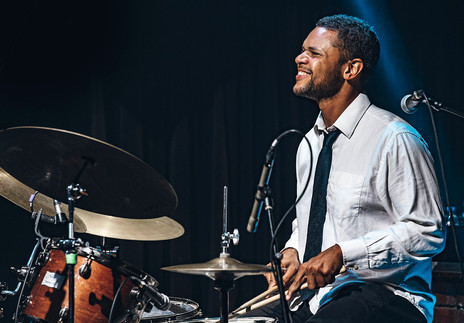
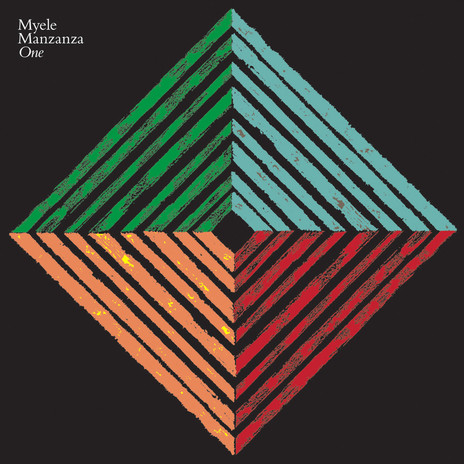
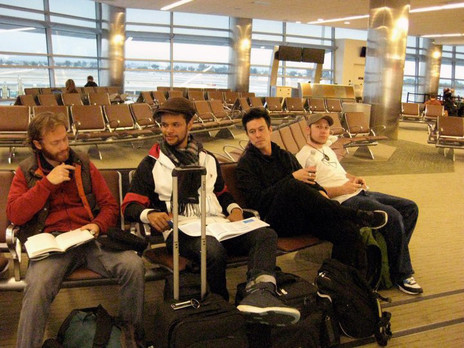
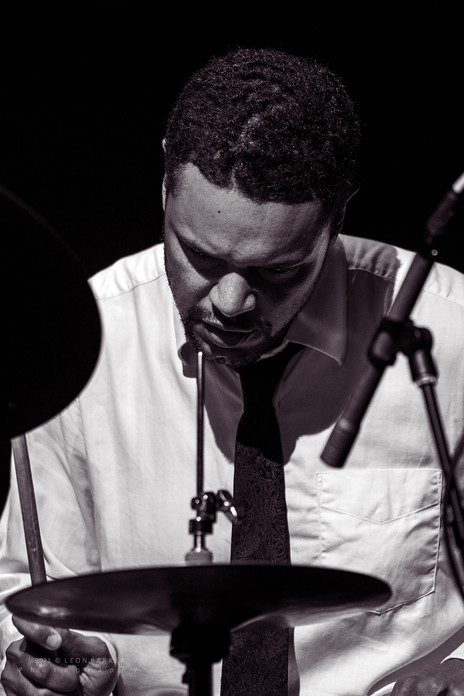
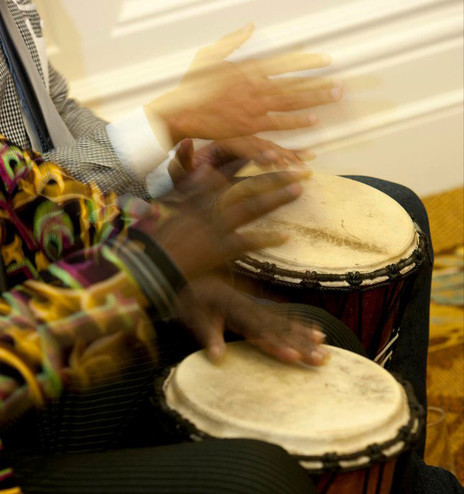
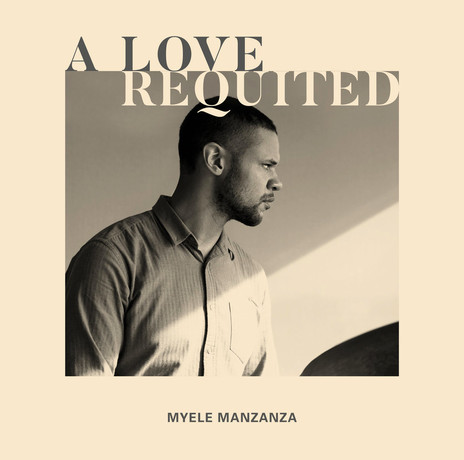
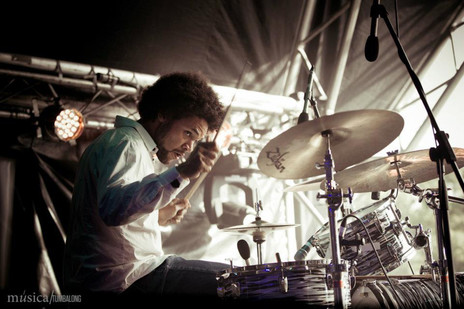
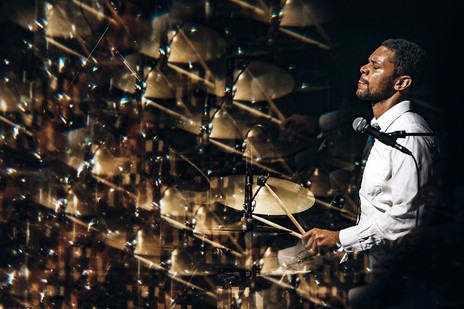
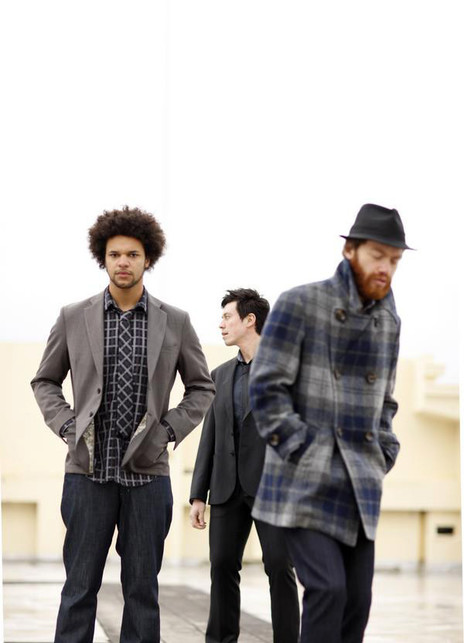
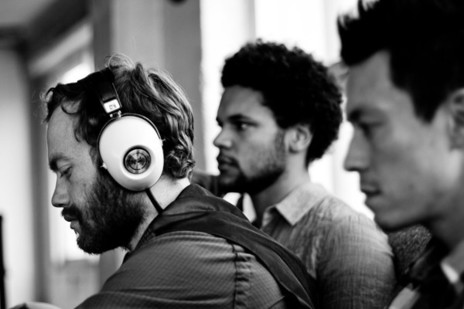
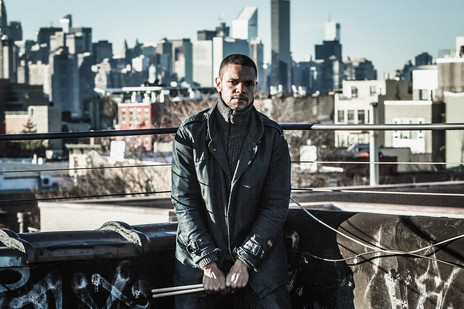
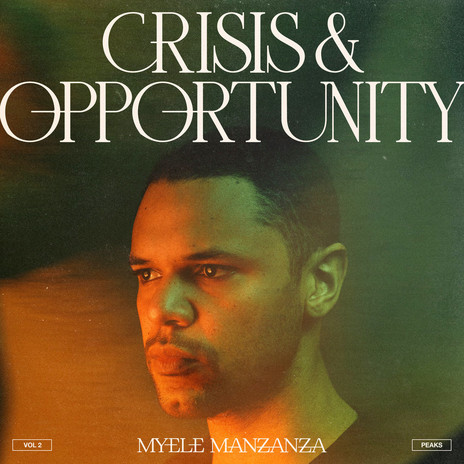
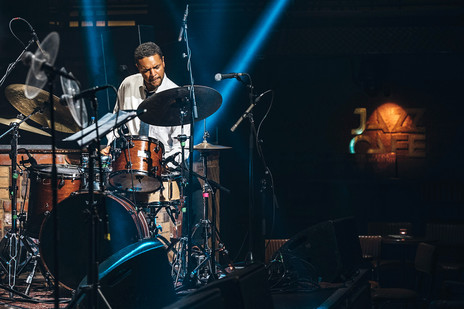
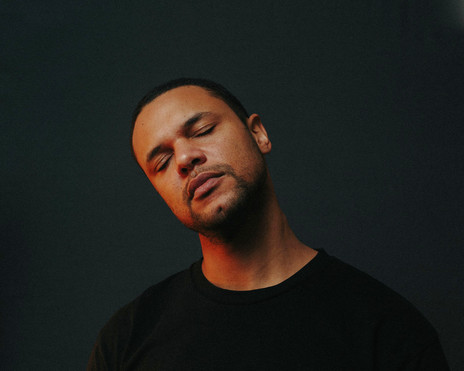
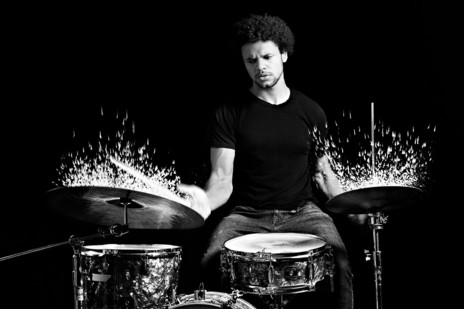
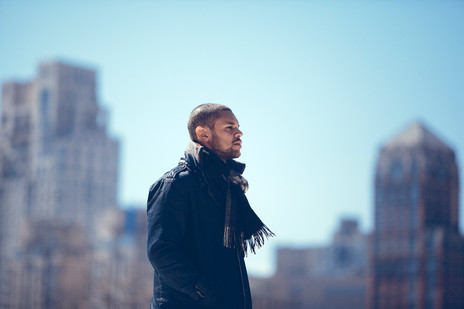
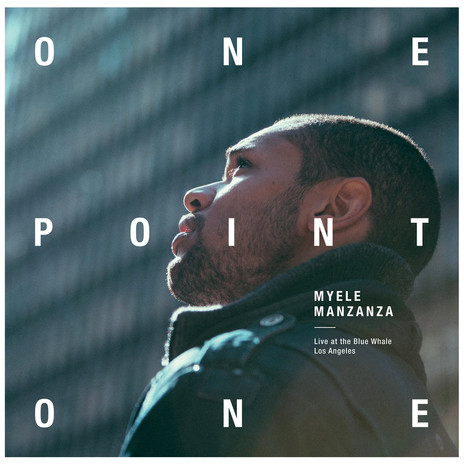
First Word Records
DeepMatter
Visit our sister site
NZ On ScreenMade with funding from
NZ On Air




